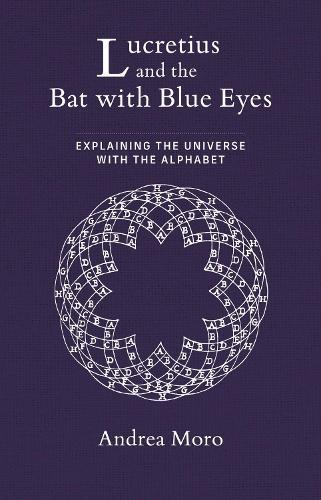Overview
A novel reading of De rerum natura through the lens of neurolinguistics. In the poem De rerum natura, written in the first century BC, Lucretius set out to explain the atomic theory of the universe and the triumph of reason over superstition to a Roman audience. In Lucretius and the Bat with Blue Eyes, a collection and critical translation of every passage on language in this great classic, renowned neurolinguist and novelist Andrea Moro explores the role of the human language and specifically the generative capacity of the alphabet to reach this goal. In Moro’s reading, De rerum natura treats the birth of language as a case study in distinguishing humans from other animals, anticipating some key concepts of the theory of evolution, in both Darwinian and molecular terms. The book considers the major commentaries on Lucretius’s work, both ancient and modern, and concludes by looking at a recently discovered letter by Descartes that addresses the idea of a “perfect language.” Focusing on a challenging yet highly poetic text and grounded in the ideas of neuroscience and linguistics, Moro’s book is also a deeply personal document, ultimately addressing the role of reason on contrasting human suffering.
Full Product Details
Author: Andrea Moro
Publisher: MIT Press Ltd
Imprint: MIT Press
Weight: 0.369kg
ISBN: 9780262554015
ISBN 10: 0262554011
Pages: 128
Publication Date: 07 October 2025
Audience:
General/trade
,
General
Format: Paperback
Publisher's Status: Active
Availability: In Print

This item will be ordered in for you from one of our suppliers. Upon receipt, we will promptly dispatch it out to you. For in store availability, please contact us.
Reviews
""Some new, ground-breaking ideas have very ancient precursors. It is still surprising, for example, how spot on yet old the atomistic hypothesis is: i.e., the idea that the world stems from the combination of a few elementary units through relatively simple combinatory mechanisms. And how incredibly revolutionary and fruitful it has been to apply this very idea beyond our material makeup, to human language and cognition. Andrea Moro undertakes an engaging voyage through one of the most fascinating voices of antiquity, Titus Lucretius Carus, who gave poetic expression to atomism through his “On the Nature of Things."" Moro first exposes the ‘generative insight’ of Lucretius, then tracks its influence on and development into some key moments in the history of thought, up to our current, biologically grounded understanding of language and the human mind. A fascinating reflection on fundamentals."" —Gennaro Chierchia, Haas Foundations Professor of Linguistics, Harvard University
Author Information
Andrea Moro is Professor of General Linguistics at the Institute for Advanced Study (IUSS) in Pavia and at the Scuola Normale Superiore in Pisa, Italy. He is the author of Impossible Languages, The Boundaries of Babel, Dynamic Antisymmetry, and A Brief History of the Verb To Be, all from the MIT Press.



